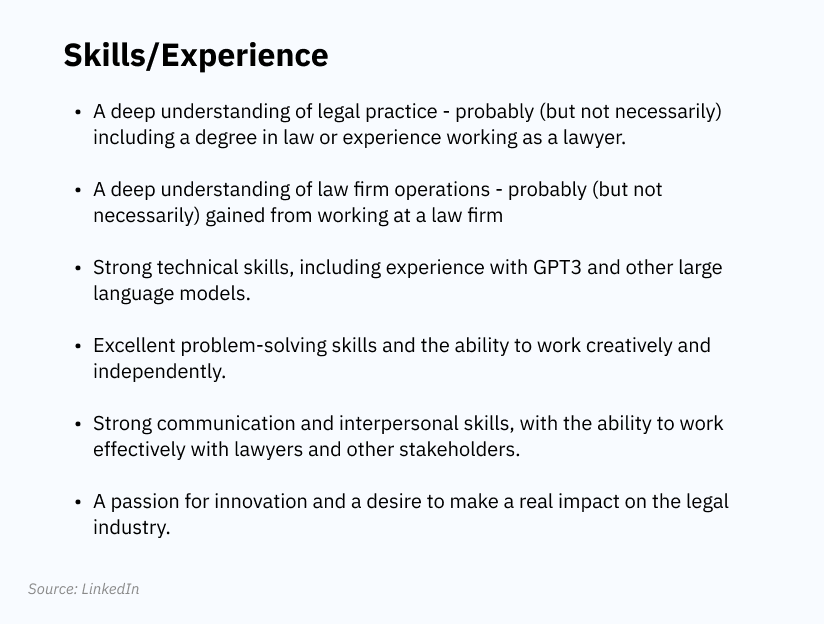The next biggest programming language is… English.
If you’ve been on social media lately (Twitter or LinkedIn) you would have seen the term “Prompt Engineering” thrown around a lot. You might have even seen people who are self-proclaimed Prompt Engineers. They’ve essentially mastered the art of telling ChatGPT what to do and now they are selling their courses or curated prompts on social media.
It’s pretty clear at this point that chatbot assistants are incredibly helpful and can essentially do the work of low-skilled office workers. According to Goldman Sachs, Generative AI is estimated to improve global GDP by 7% annually while replacing approximately 300 million full-time jobs (25% of current employment).
Fear of job loss
While some of us are loving the boosted productivity and the access to previously inaccessible support (coding, image generation, writing, etc,.) the technology comes at a significant cost. This packs even more of a punch given how the tech ecosystem looks at the moment (mass layoffs, plummeting stocks).
According to Sortlist Data Hub, 26% of European software and tech companies are planning to cut jobs as a direct result of ChatGPT (Marketing and PR jobs are most at risk).
Maybe this is a much-needed shakeup for this tech bubble that has continued to grow for too long. Regardless, if everyone will feel the shift of generative AI, the best thing to do is get ahead of the curve. At least for now, prompt engineering is going to be a thing. So best to embrace it and get good at it — that’ll soon be a requirement on job applications.
What is prompt engineering?
Prompt engineers are people who are good at asking detailed questions. And there are levels to prompting. A simple question will get a simple response. But it’s not going to be the best response — or the formatted response that you wanted. The better-constructed prompt will give a better output. And it really comes down to understanding the capabilities of the AI system so that you can avoid misinformation, hallucinations, and broken code.
The importance of prompting becomes super clear when using AI image generators like Midjourney. It takes practice to get the image type that you want. You need to have a really clear understanding of how the software works and how to translate the idea of an image into text.
I’ve done some research into prompt engineering, and apparently, there are four levels to prompting. Once you’re capable of handling and creating level-four prompts you probably have the right to call yourself a prompt engineer (it’s not as hard as people make it seem).
- Asking a question
- Giving a goal or task to achieve
- Give more context in terms of preference and specific data
- Set role and persona “acknowledge this by answering yes and stay idle.” Add in some data or research you have found and feed that to the chat. Then ask your question with the context. Then ask for the task to achieve.
With the introduction of ChatGPT plugins, we’ll see Prompt Engineering shift from simply asking good questions to setting up an environment where the chatbot can actually complete tasks on its own (i.e. performing weekly code reviews and sending a report to an email list).
How much can Prompt Engineers make?
Despite the recent emergence of these new ChatGPT Prompt Engineers, the job has actually been around for a couple of years. But, up until recently, prompt engineering has been done by machine learning experts at Big Tech companies. They train LLMs with data and their expert knowledge. According to Bloomberg, these experts could make anywhere from £40,000 to £300,000 a year depending on their experience.
Since the release of ChatGPT (a pre-trained LLM), anyone willing to pay $8/month can become a prompt engineer. Bloomberg reported on a Prompt Engineer who landed a job at Accenture, his background was in history and consulting. He has no experience with software development or machine learning. While he didn’t disclose his salary, you can imagine it’s probably quite high.
While the top jobs will probably go to people who have PhDs in machine learning or ethics, there are opportunities for those who are simply skilled at prompting. For example, a job posting from Anthropic (here’s the link) gathered a bunch of attention when people discovered they were offering salaries up to $335,000 for “Prompt Engineer and Librarian.”
AI disruption has already begun in legal, consulting, and financial services. Companies in these industries know that their bottom line will be seriously affected by tools like ChatGPT. That’s why we’ve seen such quick and early adoption which is driving the role of prompt engineer mainstream. You’ve got Accenture hiring history majors, and Mishcon de Reya hiring lawyers who can use ChatGPT.

I’ve only found a few job postings for prompt engineers in the software industry. From what it looks like, prompt engineers working with code will still need to have a strong background in software development and machine learning as well as being skilled in multiple languages. Klarity (screenshot below) and Booz Allen are the most recent job postings I could find offering anywhere from $93,300 - $230,000 a year. But this is not entry-level stuff.

The future of Prompt Engineering
Software engineers routinely make light of the fact that they spend most of their time Googling how to code. Soon (if it’s not already) they’ll spend most of their days prompting and working within the AI environment. Prompting will be semi-required and incorporated into the coding workflow. We’ve already got that with Co-pilot and some of these other helpful integrations.
I don’t think no-code prompt engineers will be working in software development anytime soon. I think what you’ll see is developers getting skilled with GPT or GPT-like tools and shifting to a new hybrid role where they are prompting code and QAing what the bot creates. In five years, this could just be what a software developer does — it might not even be called prompt engineering.
Outside of software development, no-code prompt engineering could be a really big thing. In marketing, writing, finance, consultancy, and legal, I think we’ll see a huge uptick in these jobs. Though, it does seem unlikely that you’d earn anywhere close to $200,000. Think about it. This seems like it would be a job for an intern or graduate student. The requirements to do a job like this are: 1) knowledge of the industry i.e. degree 2) experience using ChatGPT — that’s it!
If there’s one thing to take away from all of this speculative information, it’s that prompt engineering will be important in your role in the near future. The scary thing is that no-code prompt engineers could in the next five years replace a full-time software engineer. That’s a real possibility. The only way to secure your position is to skill stack with prompt engineering. A trained software engineer skilled at prompt engineering is far better than a no-code GPT user. Anyway, I’d love to hear your thoughts, let me know ✌️
READ MORE:











